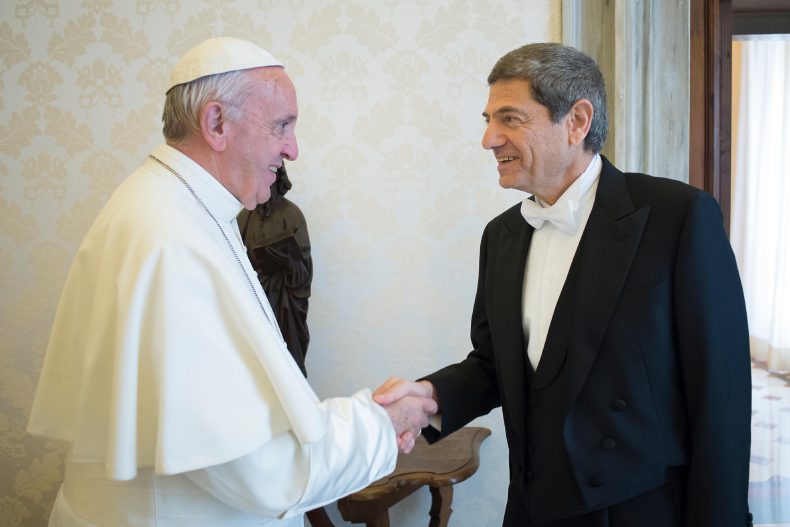“Nostra Aetate is the Magna Charta of Christian-Jewish relations”

Fifty-five years ago, this week Pope Paul VI promulgated Nostra Aetate, the declaration that marked a historical change in Christian-Jewish relations. Among others, it exonerated the Jewish people of the collective blame of Jesus’ death – one of the main sources of religious anti-Semitism throughout history. An exchange of messages between Rabbi Noam E. Marans, chair of the International Jewish Committee for Interreligious Consultations and Cardinal Kurt Koch, president of the Vatican Commission for Religious Relations with the Jews, marked the anniversary.
“It is without doubt that ‘Nostra aetate’ laid the foundation for relations between Catholics and Jews and can therefore rightly be considered to be the ‘Magna Carta’ of Catholic-Jewish relations”, wrote Cardinal Koch. The dialogue between Catholics and Jews has made its own this vision, in a spirit of fraternal and authentic friendship. “It is with gratitude – he continued – that I reflect that on the level of daily coexistence, many groups around the globe have emerged aimed at building bridges between Jews and Catholics in the spirit of ‘Nostra aetate’”. The challenge is “of gaining deeper mutual understanding, always in the mutual respect of each other’s religious traditions, and of nurturing the value of each other. Catholics and Jews should always aim to gain a deeper mutual familiarity”. This aspect, he concluded, should never be neglected, particularly in the fields of education and formation
According to cardinal Koch, Jews and Christians are “inseparably linked in the essential foundation of faith in the God of Israel” and are “united by a rich common spiritual heritage and the legacy of a longstanding shared past”.
For his part, Rabbi Marans expressed his appreciation for the results achieved in these 55 years. He also praised Pope Francis’s leadership in condemning rising antisemitism and expressed solidarity with Christians facing persecution. “At a time when anti-Semitism is on the rise and the physical threat to Jewish communities and individuals is very real, we are grateful for the steadfastness of Pope Francis, who has forcefully and repeatedly spoken out against this scourge”. Likewise, he wrote, “we stand in solidarity with our Christian brothers and sisters as they face serious religious freedom infringements, discrimination and persecution in a number of non-democratic countries across the globe”.
The importance of Nostra Aetate was stressed also by the Israeli embassy in Vatican. The declaration, read a note, “marked a new beginning in the interfaith dialogue between Israel and the Church, based on mutual respect”. The widespread perception by Catholics of the Jews, until 1965, as condemned by God to suffer exile and degradation was replaced by the words of Pope John Paul II: ‘You are our dearly beloved brothers…our elder brothers,” and Pope Francis: “A Christian cannot be anti-Semitic because of our common roots’. The theological change lead finally “to the process of reconciliation, recognition and dialogue between the Catholic Church and the Jewish people, and to Israel’s relations with the Holy See”.
